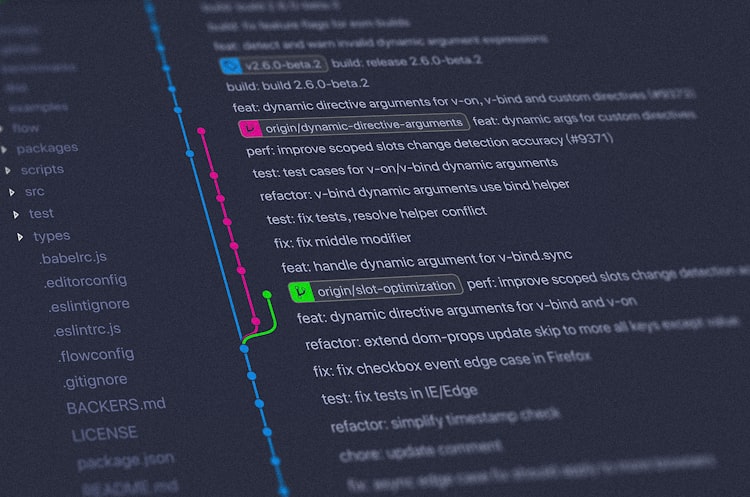Acquia and Drupal in APAC

The original timestamp on this post was back in April, shortly after I started with Acquia. However, as has been the case with a number of my commitments, I'm only getting round to writing this now. An entirely non-technical article, I decided I'd like to get some thoughts down on 'paper' about my transition to the role at Acquia, what the job entails and where I think the company will go within Asia Pacific in the future.
Clearly, the obvious disclaimer of speaking as an individual, not on behalf of the company, applies here although it's probably a good idea for me to make that explicit.
The how
During DrupalCon Sydney, I met a bunch of Acquians. A sea of blue in the Drupal drop shirts easily distinguishable when observing the crowd. In turn, I was approached and asked if I'd like to check how good the website I was working on was, using instant insights. Apprehensively, I offered the address of the Federal AMA, the website we'd just finished migrating from Drupal 6, and waited with bated breath.

Luckily, the result came back as an A+ and suddenly my efforts of the previous months were not in vain. Additionally, the privilege of an A+ means a free T-shirt and who turns down free shirts!
A little while after the conference, contact was made and the rest is; not history, more, the recent past.
On joining
Joining the 'club' was a little daunting if truth be told, although absolutely not required. I was flown to HQ in Boston, onboarded with the company and made to feel very welcome by my new colleagues. I might have overdressed a little for my first day; opting for the dress pants and shirt combo that adorned me at my previous place of employ. If anyone asks though, I'll maintain it was so I could style on everyone.
The whirlwind tour of the office was solidified by being introduced to all the members of my team, sitting with them while they worked, taking part in team meetings and generally starting to feel out my place and where I belonged.
On working
The role I'm in provides me with the opportunity to get hands on with hundreds of different codebases and attempt to find solutions to some of the most interesting Drupal problems/implementations. As well as this, I'm able to present myself in an advisory capacity on dedicated channels where specific expertise is required for either planning, implementing or troubleshooting a business/code arrangement.
The job really flies when emergency situations land. Perhaps a site has just launched and it tanks due to higher than expected load, maybe a coding snafu has brought a site to its knees, or it could just be malicious attacks. Any of these situations, in a myriad of contributing factors can occur, and it's a part of my job to fend off attackers, hotfix pain code and ensure Drupal is performing as well as it can. Some issues will literally have a number of team members collaborating for hours, sometimes days, to keep the sites up and we do it well, which is always a plus!
As well as deepening my knowledge of the ever moving drop, a lot of Acquia is about the infrastructure. Extending my comprehension of Varnish, memcache, server sizing, iptables, puppet, FPM, CGI and much more is a direct result of being around all of them every day.
If this is something you think you could see yourself doing, we're always hiring so do get in contact with me.
On the future
Since Acquia is indelibly tied to Drupal, the growth of Drupal within the Asia Pacific region directly affects me. I've made some of my own assumptions about the future of Drupal within the APAC. They may turn out to be entirely wrong, but it's good to have something on 'paper' that I can refer to in the future if they eventuate.
Australia

Compared to the US and Europe, Australia has a maturing Drupal ecosystem. The government has started using Drupal and open source has the backing from the right people. We have a bunch of really top rated Drupal shops evangelising the usefulness of Drupal to clients and a number of well populated Drupal user groups in the major cities.
Whilst Australia hasn't broken out completely in the same way that Europe and the US are continuing to do, it's on the edge which makes it exciting to be here with Drupal doing so well.
Singapore

With a number of companies and organisations on the island city converting to Drupal and a DrupalCamp this year, it's my opinion that Singapore will be one of the next key areas of Drupal usage after Australia. A relatively small country, with a number of the world's largest businesses holding major offices in a confined space, there is a density of technology that breeds itself to the rapid sharing of ideas and solutions. I enjoy working with Singaporean clients, all of whom are eager to lap up all the Drupal knowledge I can provide so this bodes well for the future of Drupal there!
China

Whilst traditionally China has typically been slow to react to recent developments in tech; all that's changing. Again, like Singapore, the DrupalCamp and user group scene has made me believe we'll be seeing some cool things out of the middle nation. A close friend of mine, and Drupalist, who himself hails from China receives frequent offers for work in start-ups in both Shanghai and Beijing. A sign that, like Australia, the jobs are there, but people with the expertise required are in short supply.
Japan

Similar to the above countries, Japan is developing a great Drupal culture, with a number of good services and well known names from the community working from there. The beginnings of a healthy community backed by user groups and events will bring Drupal to the fore, allowing more to become aware of the software, empowering companies to take the plunge into open source confident that there is support both in the community and the wider world ready to assist.
Anticipation
Overall, I'm very excited to be in the APAC sector of the world within this industry at this time. Like Adam Smith standing on the precipice of the industrial revolution, I can feel stirrings in the underlying structure of traditional content management. No longer are companies and individuals prepared to pay licenses for products of comparable (or lower) quality to those available without charge. With the internet and FOSS culture permitting anyone to learn about certain technologies, Drupal included, there is automatically a draw to study without fee.
As a self taught example of this very situation, I'm confident that others sharing my passion and drive not only exist, but are already picking up the vital skills and experience necessary to push Drupal to its activation energy (I'm a Chemist remember) after which follows, like an exothermic reaction, huge uptake and a boom in usage .
Much like those pondering an early investment in Google or Apple, throw yourself in with the open source ticket in APAC because things are going up.





